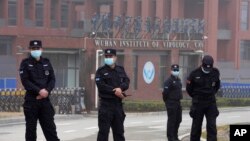The rapid spread of COVID-19 clearly demonstrated that an infectious disease threat anywhere can be a threat everywhere. In today’s interconnected world, a pathogen can travel around the globe to major cities in a matter of hours. This means that when a deadly disease emerges it can be carried around the world in no time, as we saw with COVID-19.
“Over the past two years, the world has learned through hardship and tragedy just how dangerous and disruptive a threat to our global health security can be,” said National Security Advisor Jake Sullivan.
“That’s why the Biden-Harris Administration has put global health security back at the top of our national security agenda—to defeat this pandemic and to invest in strengthening health systems globally.”
Prevention, detection and response are the first line of defense against any infectious disease. That is why, in 2014, a group of 44 countries and international organizations, including the United States, launched the Global Health Security Agenda, or GHSA, a five-year field effort to improve the capabilities of developing countries to take on infectious disease.
In Fiscal Year 2020, the U.S. Government provided more than 480 million dollars to advance GHSA work in partner countries, and nearly 610 million dollars for 2021. According to the most recent Global Health Security Agenda Annual Report, which was released in mid-October, these resources built upon the health security capacity gains in partner countries from previous U.S. investments of more than 2 billion dollars since 2015. The funds went toward aiding the efforts of partner countries to rapidly detect and effectively respond to infectious disease outbreaks, including COVID-19 and Ebola virus disease, and to prevent avoidable outbreaks.
“This Administration is committed to supporting and strengthening GHSA in the years ahead, and we will continue to use our partner country investments and technical expertise to help achieve the GHSA target,” said Mr. Sullivan.
“Improving the capabilities of individual countries and our shared capacity to take on infectious disease threats has never been more important…. We can invest in saving lives now and creating a more secure and healthy future. The GHSA is a vital part of that work.”






